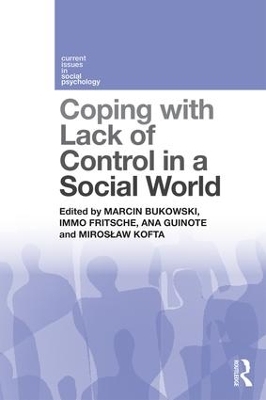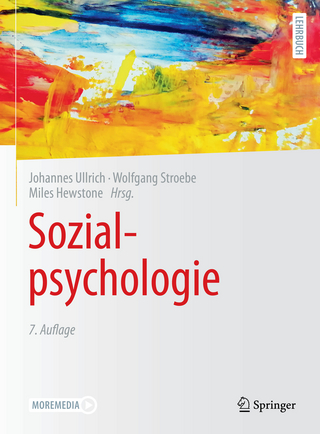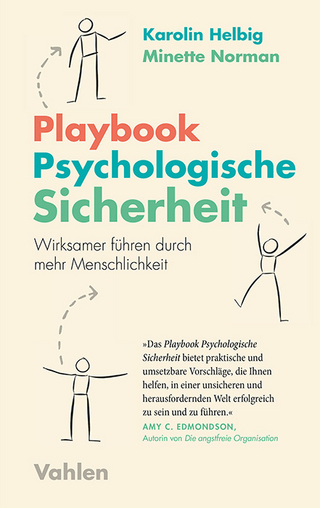
Coping with Lack of Control in a Social World
Routledge (Verlag)
978-1-138-95793-0 (ISBN)
Coping with Lack of Control in a Social World offers an integrated view of cutting-edge research on the effects of control deprivation on social cognition. The book integrates multi-method research demonstrating how various types of control deprivation, related not only to experimental settings but also to real life situations of helplessness, can lead to variety of cognitive and emotional coping strategies at the social cognitive level. The comprehensive analyses in this book tackle issues such as:
Cognitive, emotional and socio-behavioral reactions to threats to personal control
How social factors aid in coping with a sense of lost or threatened control
Relating uncontrollability to powerlessness and intergroup processes
How lack of control experiences can influence basic and complex cognitive processes
This book integrates various strands of research that have not yet been presented together in an innovative volume that addresses the issue of reactions to control loss in a socio-psychological context. Its focus on coping as an active way of confronting a sense of uncontrollability makes this a unique, and highly original, contribution to the field. Practicing psychologists and students of psychology will be particularly interested readers.
Marcin Bukowski, Lecturer and Researcher, Institute of Psychology, Jagiellonian University, Poland. Immo Fritsche, Professor of Psychology, Leipzig University, Germany. Ana Guinote, Professor of Psychology, University College London, UK. Mirosław Kofta, Professor of Psychology, University of Warsaw, Poland.
1. From Coping to Helplessness: Effects of Control Deprivation on Cognitive and Affective Processes 2. The Motivation for Control: Loss of Control Promotes Energy, Effort, and Action 3. "Ironic" Effects of Need for Closure on Closed-minded Processing Mode: The Role of Perceived Control over Reducing Uncertainty 4. Uncontrollability in the Classroom: The Intellectual Helplessness Perspective 5. Compensatory Control Theory and the Psychological Importance of Perceiving Order 6. Perceived Uncontrollability as a Coping Resource: The Control-serving Function of Enemies and Uncertainty 7. Giving in and Giving Up: Accommodation and Fatalistic Withdrawal as Alternatives to Primary Control Restoration 8. Extending Control Perceptions to the Social Self: Ingroups Serve the Restoration of Control 9. Coping with Identity Threats to Group Agency as well as Group Value: Explicit and Implicit Routes to Resistance 10. Thinking Up and Talking Up: Restoring Control through Mindreading 11. Accentuation of Tending and Befriending Among the Powerless 12. The Emotional Side of Power(lessness) 13. Uncontrollability, Reactance, and Power: Power as a Resource to Regain Control after Freedom Threats
| Erscheinungsdatum | 24.05.2016 |
|---|---|
| Reihe/Serie | Current Issues in Social Psychology |
| Zusatzinfo | 9 Line drawings, black and white |
| Verlagsort | London |
| Sprache | englisch |
| Maße | 156 x 234 mm |
| Gewicht | 400 g |
| Themenwelt | Geisteswissenschaften ► Psychologie ► Arbeits- und Organisationspsychologie |
| Geisteswissenschaften ► Psychologie ► Sozialpsychologie | |
| ISBN-10 | 1-138-95793-3 / 1138957933 |
| ISBN-13 | 978-1-138-95793-0 / 9781138957930 |
| Zustand | Neuware |
| Informationen gemäß Produktsicherheitsverordnung (GPSR) | |
| Haben Sie eine Frage zum Produkt? |
aus dem Bereich


